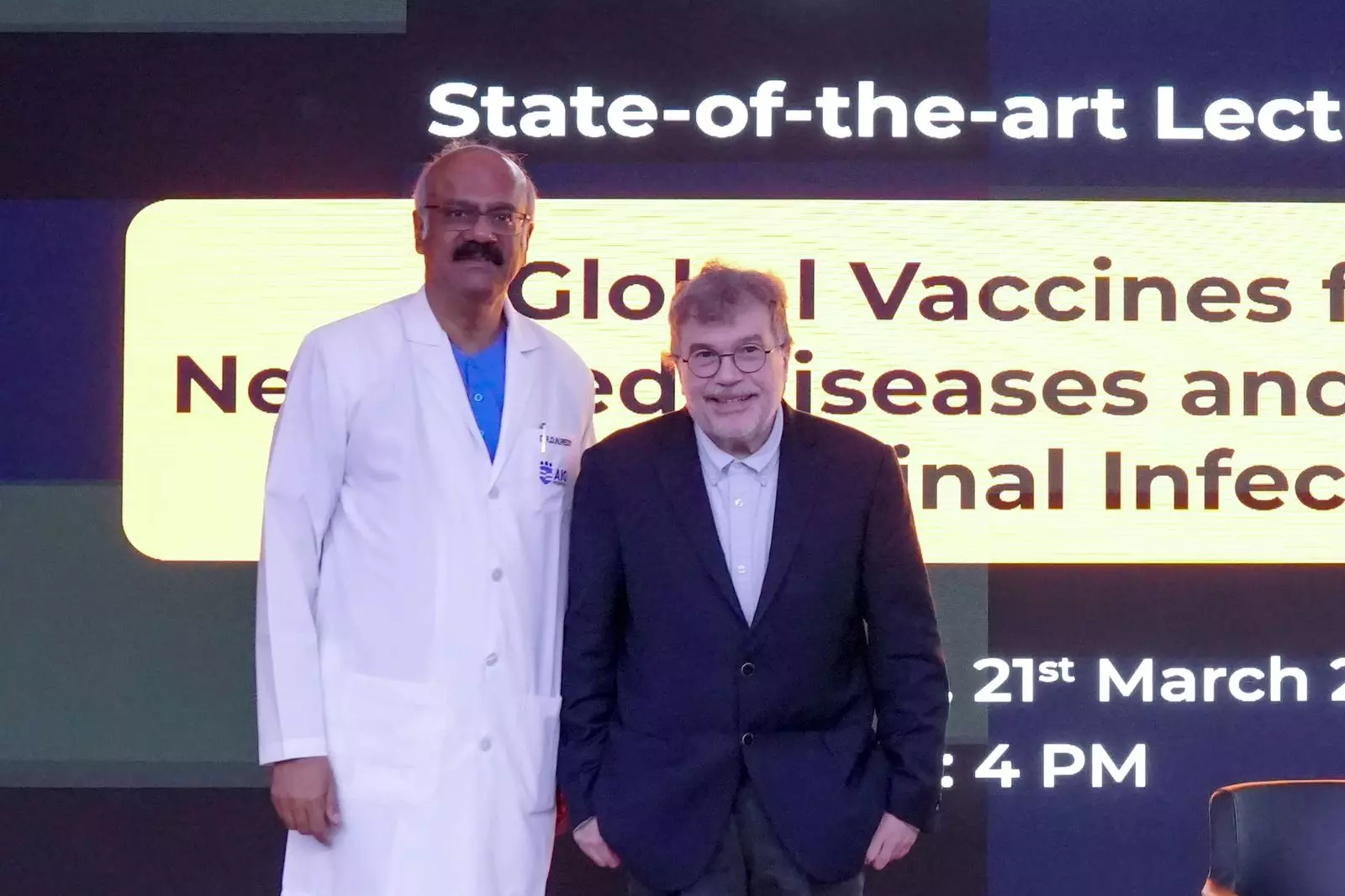Professor Peter J Hotez Urges Urgent Action on Neglected Disease Vaccines

Prof. Peter J Hotez with Dr. D Nageshwar Reddy. (By Arrangement)
Hyderabad: Prof. Peter J Hotez, a distinguished scientist specialising in neglected tropical diseases, emphasised the critical role of vaccine accessibility in combating neglected diseases, and the disproportionate impact on low and middle-income countries. He was in town to deliver a lecture centered on 'Neglected Disease Vaccines,' at AIG Hospitals in Hyderabad, where he highlighted the urgent need for vaccine development, particularly in regions like India facing a significant burden of diseases such as hookworm infestation.
During the lecture, Prof. Hotez, Dean of the National School of Tropical Medicine at the Baylor College of Medicine, said that neglected diseases continued to pose a significant threat to global health, particularly in resource-constrained settings. "Investing in the development and accessibility of vaccines for these diseases is not only a moral imperative but also a strategic investment in public health and economic development."
Prof. Hotez addressed the impact of neglected disease vaccines on the healthcare landscape of low and middle-income countries, highlighting the potential to alleviate the burden of disease and improve overall well-being. He spoke of research, innovation, and global collaboration in advancing neglected disease vaccines and achieving health equity for all.
The human hookworm vaccine had showed promising results in the trial phase, Dr Maria Elena Bottazzi, associate dean of the institute, said.
Dr D. Nageshwar Reddy, Chairman of AIG Hospitals, stressed the importance of adult vaccination and the need to address vaccine hesitancy within the population.
In terms of the need to develop specific vaccines for tropical gastrointestinal disease like hookworm infestation Dr Reddy added that doctors witness firsthand the debilitating impact of hookworm infestation, particularly in regions like India where it's prevalent.
"The link between hookworms and anemia is undeniable, affecting millions annually. Introducing a vaccine could revolutionise public health, potentially saving countless lives and preventing a significant burden on healthcare systems. In India alone, over 100 million people are estimated to be infected, making the need for a vaccine not just imperative but humanitarian," Dr Nageshwar Reddy said.
( Source : Deccan Chronicle )
Next Story

